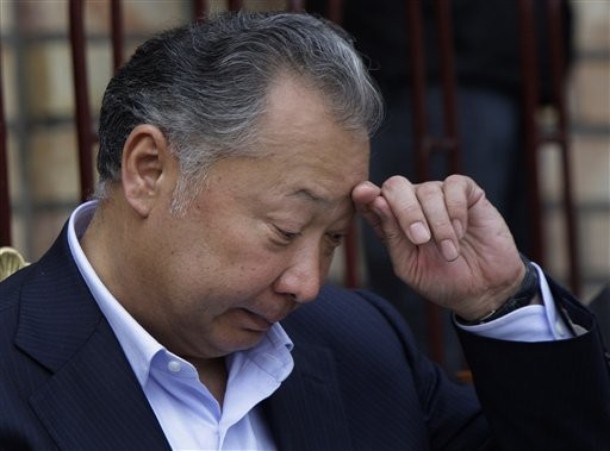
Via Andrew Sullivan, Scott Harper reflects on the implications of the violence in Kyrgyzstan:
I asked Alex Cooley, a Columbia University professor who has studied the politics of the Manas air base, how he expected these developments to affect the relationship:
The United States has founded its engagement with the Kyrgyz government on providing lucrative contactsâ??for fuel and other Manas-related servicesâ??worth hundreds of millions of dollars to entities controlled by the Bakiyev ruling family. In the event that the government collapses, its successor will deem these contracts improper and will either terminate or renegotiate them. In fact, in the aftermath of the Tulip Revolution, then interim president Bakiyev publicly denounced the airbase deals that the United States had cut with the deposed Akayev family and demanded a huge increase in base-related rent. The larger lesson for the Defense Department should be clear: placating authoritarian regimes with private contracts and pay-offs does not guarantee long-term stability of relations; in volatile political climates like Kyrgyzstan, it may, in fact, sow the seeds for discontent and political challenges to the regime.But protestors also express anger at OSCE for providing military and police support, as seen in this footage posted by Reuters TV, in which a woman shakes her fist in anger at the heavy-handed techniques of the police, noting that OSCE has trained the police to repress the people.
The unrest in Kyrgyzstan is among other things a test for the short-term, and probably short-sighted, policies behind the U.S./NATO support arrangements in Kyrgyzstan. The United States has curried favor with powerful political figures intent on rent seeking. What happens when those figures buckle and fold in the face of public unrest? The U.S. proclivity for â??sweet dealsâ? with those in power will complicate things in time of transition.
To be fair to the U.S., it would be rather obnoxious to ask for a base agreement to support an urgent foreign policy priority only to tell the leaders of the host country that in addition to having the pleasure of assisting the United States they should reform themselves out of power and privilege. Seems like a hard sell.
But this does reinforce the problem of the scale of the effort in Afghanistan. I won't pretend to be intimately familiar with military logistics, but I'm assuming that the more troop-intensive the effort in Afghanistan is, the more important regional basing and resupply facilities become. And so the consequence of waging a large-scale counter-insurgency in Afghanistan (as opposed to the narrower, counter-terrorism war we're currently waging in Pakistan) is to put the U.S. in the awkward position of very publicly cutting unsavory deals with the likes of Kurmanbek Bakiyev.
(AP Photo)



